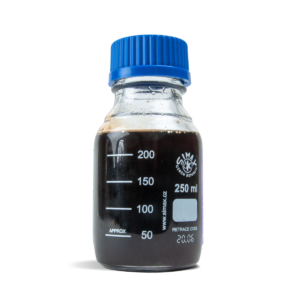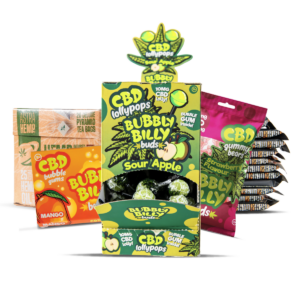Showing all 15 resultsSorted by latest

Shop UK wholesale prices on a wide range of CBD raw materials and ingredients, available in quantities starting from 500g – 1KG and available with next day UK delivery on orders confirmed before 1:00pm, Mon-Thu.
From raw CBD crude oils and pastes to ultra refined CBD isolates and distillates, when choosing Dushey as your UK-based CBD supplier you’ll enjoy high quality CBD extracts with downloadable lab reports and data sheets for all of our raw materials.
CBD raw materials are natural extracts from the hemp plant, usually the Sativa L. strain, that form the base ingredients used in making CBD products.
These can range from raw CBD paste extracts and crude oils with very little processing, to highly-refined 99% pure CBD isolate powders.
CBD raw materials also include distillates and oils, available in a wide selection of strengths from 10% cannabidiol to our popular 90% ultra distillate.
CBD raw materials can come in a variety of types and forms:
CBD isolate is a pure, crystalline powder that contains 99% pure CBD. As a raw material ingredient, CBD isolate can be used in various ways across different industries. Here are some common applications:
One of the most popular uses of CBD isolate is in the production of CBD tinctures and oils. It can be easily dissolved in carrier oils (such as MCT oil) to create a potent and pure CBD product. Users can take these sublingually for fast absorption.
CBD isolate can be infused into various edible products, including gummies, chocolates, and baked goods. It’s a versatile ingredient that can be easily measured and added to recipes, providing a consistent dosage.
CBD isolate can be encapsulated to create CBD pills or capsules. This allows for convenient and precise dosing, making it an attractive option for those who prefer a measured and taste-free method of consumption.
CBD isolate can be incorporated into creams, balms, and lotions for topical applications. When applied to the skin, CBD may interact with local cannabinoid receptors, potentially offering targeted relief for conditions like localized pain or inflammation.
Some manufacturers use CBD isolate in the production of vape juices or e-liquids for electronic cigarettes. However, it’s essential to note that the safety of vaping products is a subject of ongoing research.
CBD isolate can also be found in various cosmetic and skincare products, including serums, creams, and masks. Its potential anti-inflammatory and antioxidant properties make it an attractive ingredient for skincare applications.
CBD isolate can be combined with other cannabinoids, terpenes, or ingredients to create custom blends tailored to specific desired effects. This allows product manufacturers to experiment with formulations that cater to different consumer preferences.
Using high pressure emulsion techniques, CBD isolate can be made water-soluble, making it suitable for use in beverages. It can be added to water, energy drinks, or other beverages to create CBD-infused drinks.
CBD distillate is a concentrated form of CBD that typically contains a broad spectrum of cannabinoids, terpenes, and other beneficial compounds. As a raw ingredient, CBD distillate is versatile and can be used in various applications. Here are some common ways CBD distillate is utilised:
CBD distillate can be a key ingredient in the formulation of CBD tinctures and oils. It is often combined with carrier oils (such as MCT oil) to create a product that can be taken sublingually. The broad spectrum of compounds in the distillate may contribute to the entourage effect, where different cannabinoids and terpenes work synergistically.
CBD distillate is frequently used in the production of edible products, including gummies, chocolates, and baked goods. Its concentrated form allows for precise dosing, and the broader cannabinoid profile may enhance the overall therapeutic effects.
Similar to CBD isolate, CBD distillate can be encapsulated to create CBD pills or capsules. This provides consumers with a convenient and discreet way to consume CBD.
CBD distillate can be incorporated into various topical products, such as creams, balms, and salves. These products can be applied directly to the skin, targeting specific areas for potential relief from pain or inflammation.
Some manufacturers use CBD distillate in the production of vape juices or e-liquids. Vaping allows for fast absorption of CBD into the bloodstream. However, it’s important to note that the safety of vaping products is a subject of ongoing research.
CBD distillate can be blended with other cannabinoids, terpenes, or botanical extracts to create custom formulations. This allows product manufacturers to experiment with different ratios and combinations to achieve specific effects or flavors.
CBD distillate, especially water-soluble variants, can be incorporated into various beverages like energy drinks, teas, or functional waters. This offers a convenient and flavourful way for consumers to enjoy CBD.
Manufacturers can use CBD distillate as a starting material to isolate specific cannabinoids through further processing. This allows for the creation of products that specifically target the benefits of individual cannabinoids.
The terms “full spectrum” and “broad spectrum” are employed to delineate different types of CBD extracts, indicating the spectrum of compounds found in the extract, encompassing cannabinoids, terpenes, and other beneficial elements. The principal disparity between the two lies in the THC content.
Both full spectrum and broad spectrum CBD distillates present distinct advantages, and the choice between them hinges on individual preferences, legal considerations, and sensitivity to THC.
Full spectrum CBD distillate comprises an extensive array of cannabinoids, terpenes, and other phytonutrients found in the cannabis plant, inclusive of THC (tetrahydrocannabinol).
Typically, the THC content is below the legal limit of 0.2% in the United Kingdom. The concept behind full spectrum is to capitalise on the entourage effect, where the various compounds collaboratively enhance the therapeutic effects of CBD.
Broad spectrum CBD distillate similarly encompasses various cannabinoids and terpenes, resembling full spectrum. However, the pivotal difference is that broad spectrum products are processed to eliminate or diminish the THC content to non-detectable levels (typically below 0.01%).
This adjustment is made to accommodate individuals who wish to steer clear of THC due to legal restrictions or apprehensions about its psychoactive effects. Despite the removal of THC, broad spectrum products aim to retain the entourage effect by preserving the other beneficial compounds.
